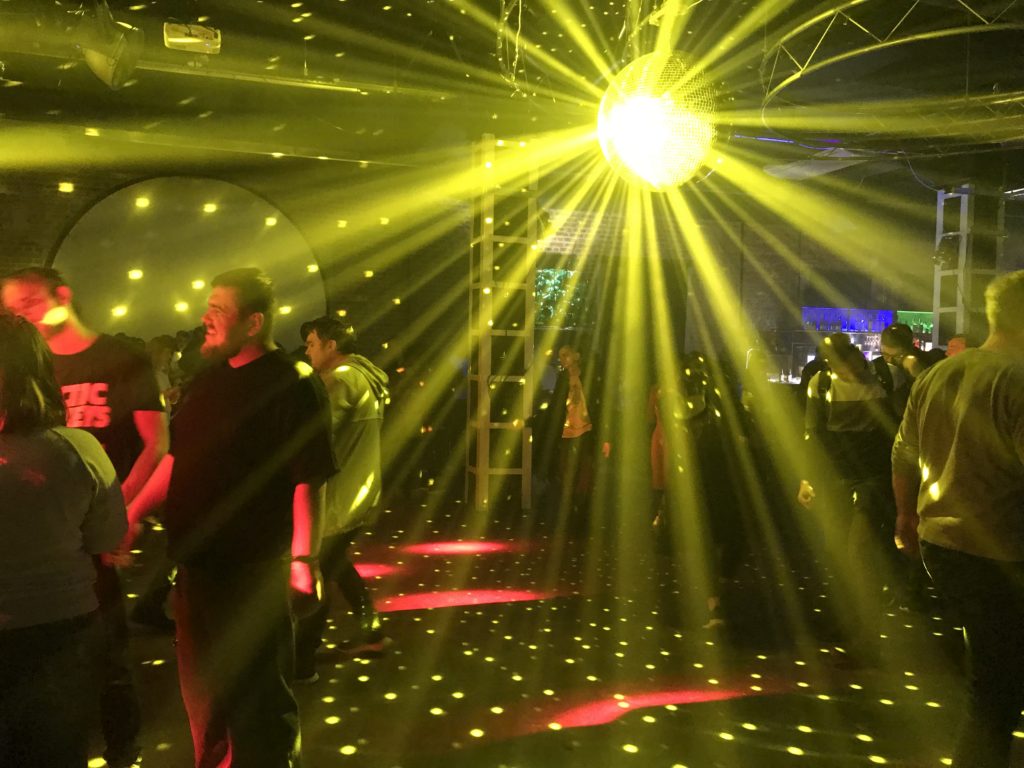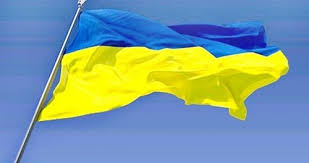“Pravda” means “truth”. It also happened to be the name of the Soviet state newspaper during the Cold War.
Truth can be fickle, subject to perspective. I know of at least one: Nutella. That shit is awesome. Even moreso when consumed at a sidewalk cafe in Europe on a fresh, buttery, croissant.
I’ve been in Ukraine for the past couple of weeks. Work called me here; it’s not often the top of anyone’s list as a tourist destination. But I travel, in part, to learn. To disregard the truth that is presented to me by others. To see for myself.
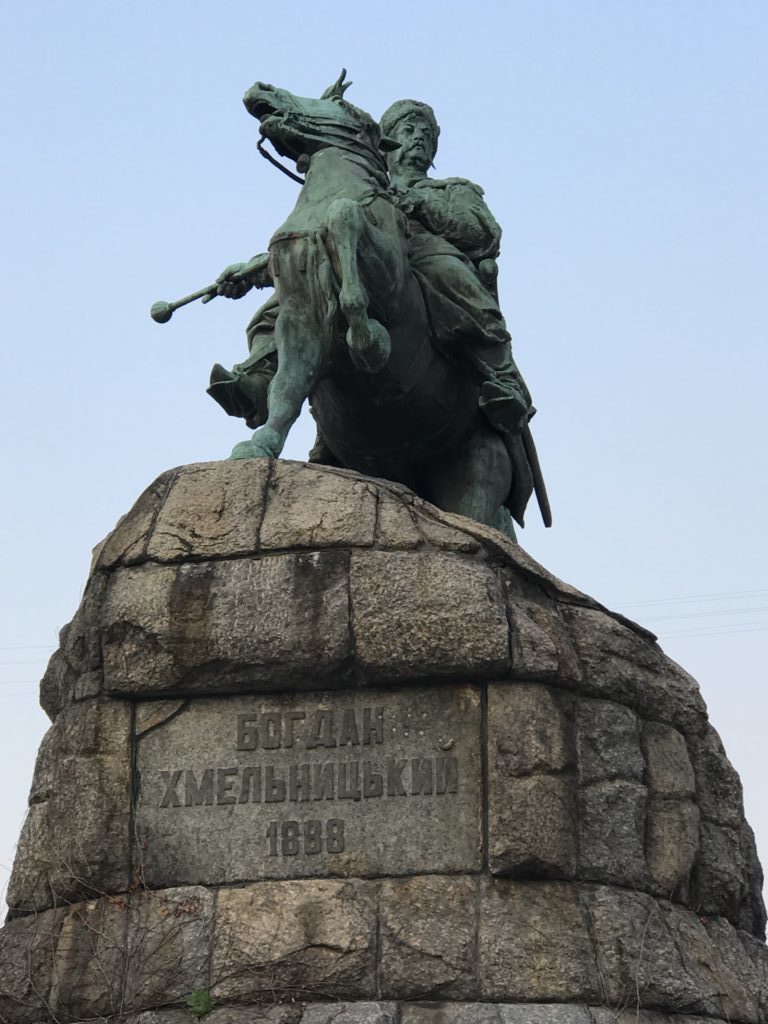
For the geographically challenged among you, Ukraine is in Eastern Europe, further east of Poland but still just this side of Russia. It’s a sizable nation, actually the largest in Europe, about the size of Texas. For most of the past century it has been a republic of the Soviet Union, not by choice.
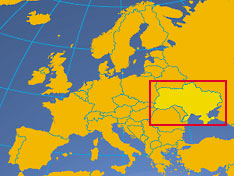
Before coming here, I knew more about the Ukraine than most Americans. Which is to say I knew the capital was Kiev, there was a destination city with a UNESCO world heritage medieval city center in the west called Lviv, and that Ukraine girls really knock Paul McCartney out (Beatles’ “Back In The USSR”).
However, preparing to come here, I was asked not to refer to this nation as The Ukraine. It’s a sovereign nation called, simply, Ukraine. Other European nations are not called “The France” and “The Italy”, after all. The Russians used the definite article because they thought of Ukraine as no more than a region within the Soviet Union, akin to “The South” or “The West” in the US.
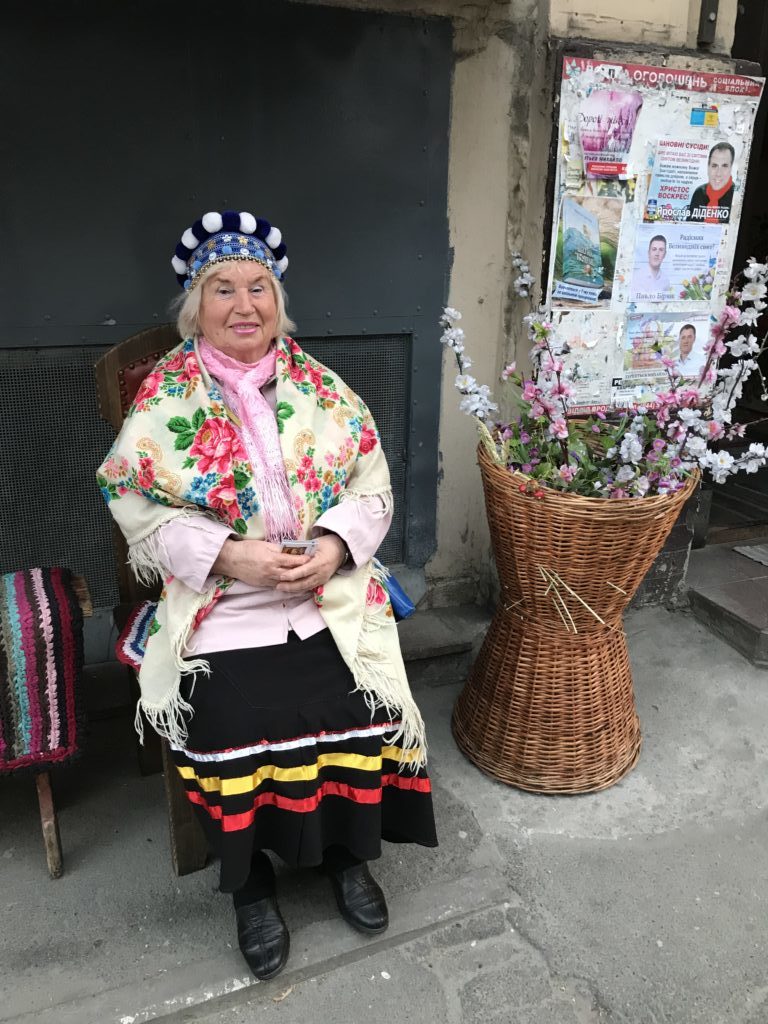
And it’s not spelled Kiev, it’s Kyiv. The Russians spelled it incorrectly. For that matter, the Russians mispronounced it and spread their error around the world: the proper pronunciation is not kee-EHV but is closer to the monosyllabic “keev”.
And it’s not vodka. It’s horilka. Trust me on this, I have a great deal of recent personal experience on this subject. Vodka is Russian, horilka is Ukrainian. I’m using an English-friendly spelling here because it’s actually горíлка which uses the Cyrillic alphabet. Sorry, the Ukrainian alphabet: Cyrillic is the Russian alphabet.
Hopefully you see where I’m going with this. For Ukrainians there is a constant, pervasive, and ominous military and cultural threat just to the east. It’s not something we Americans easily relate to, unless we can imagine a communist, nuke-armed, militarily aggressive, and constantly provocative Canada. Not a pleasant thought, eh?
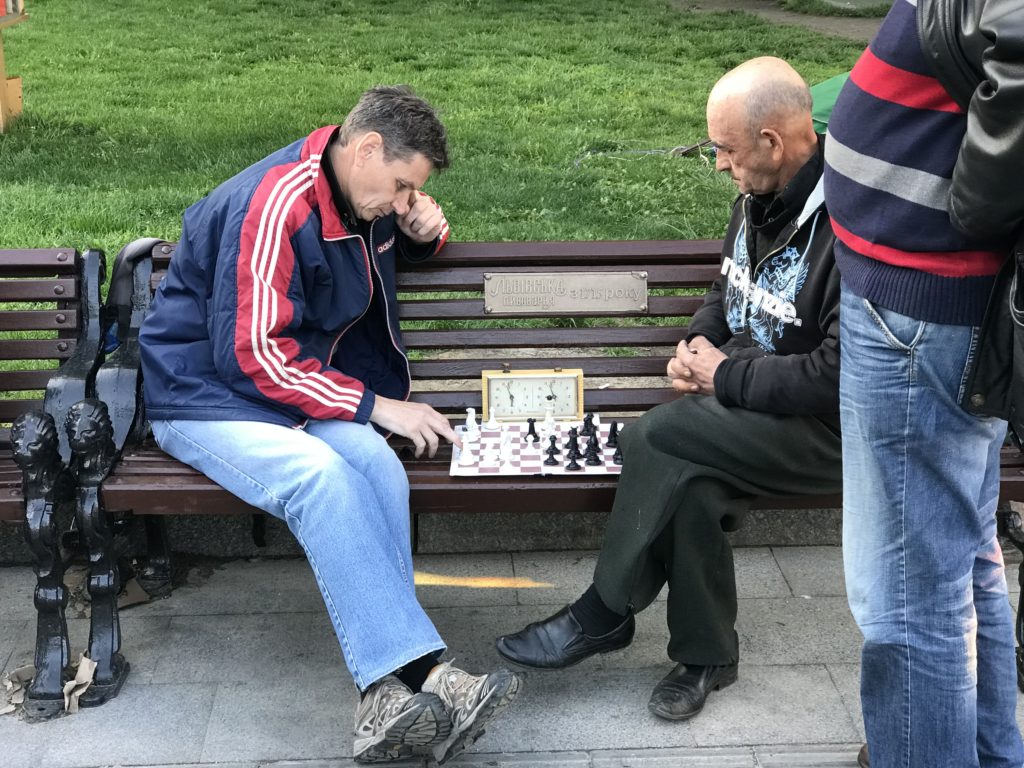
Despite living with the constant threat of Mordor and the Dark Lord Putin, Ukrainians are working hard at getting on with building a modern, democratic, capitalist, and thoroughly European society. They take deserved pride in their culture, unique (tasty and filling) food, music, history, and a host of other qualities that makes Ukraine, well, Ukrainian. I venture to say Ukrainians are more Ukrainian than British are British, French are French, and Germans are German. They are working as hard to be Ukrainian as Americans work to be American.
Looking from the outside, it’s hard to understand what interest the Russians would have with Ukraine. The press tells us that it’s Ukraine’s access to the Black Sea, but a quick study of the map shows that Russia already has plenty of access to the Black Sea without sending tanks into Ukraine’s Crimea.
We’re also given a self-determination excuse that the population of Crimea prefers to be part of Russia. But perhaps there are a few hundred people in Maine who would like to be Canadian: would that give Canada the right to annex The Pine Tree State? And yes, that really is the astoundingly uncreative nickname of the state of Maine.
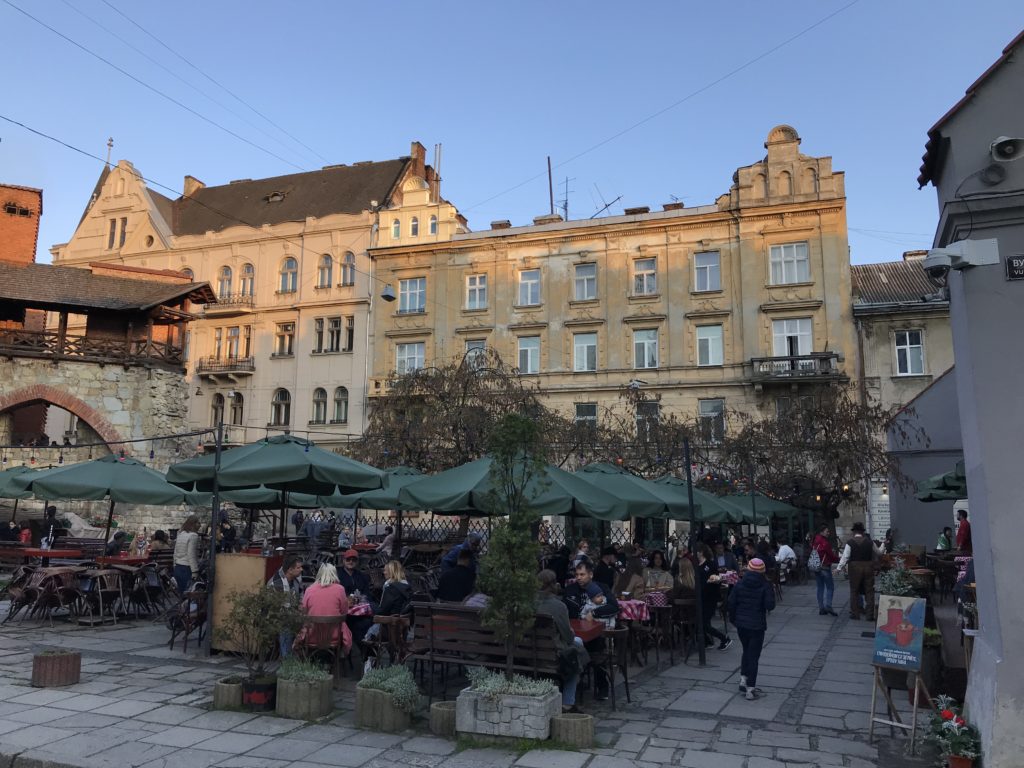
The truth is that Crimea shouldn’t be a strategic interest to Russia and that we may never know the self-determination sentiments of the Ukrainians in Russia-controlled territories of Ukraine because free and legitimate elections are not something Russians like to do.
Perhaps the Russians lack wonderfully flavored vodkas (excuse me, horilkas) that don’t cause hangovers. Perhaps they desire more pleasant sidewalk cafes and medieval city centers and delicious little dumplings filled with meats and cheeses. Perhaps they’ve lost their own cultural identity and envy the Ukrainian identity.
The truth is that the Ukrainian people are getting on with the business of building their country and their economy from the inside out. They were the brainpower of the Soviet empire, their universities turning out engineers and scientists and programmers, and they still are today, just under a Ukrainian flag and with the rest of the world benefiting from their smarts and industriousness. It seems obvious to me, then, that Russia’s strategic interest in Ukraine is that these people work. They are productive. And productivity is an enviable strategic interest to any nation, especially Russia.
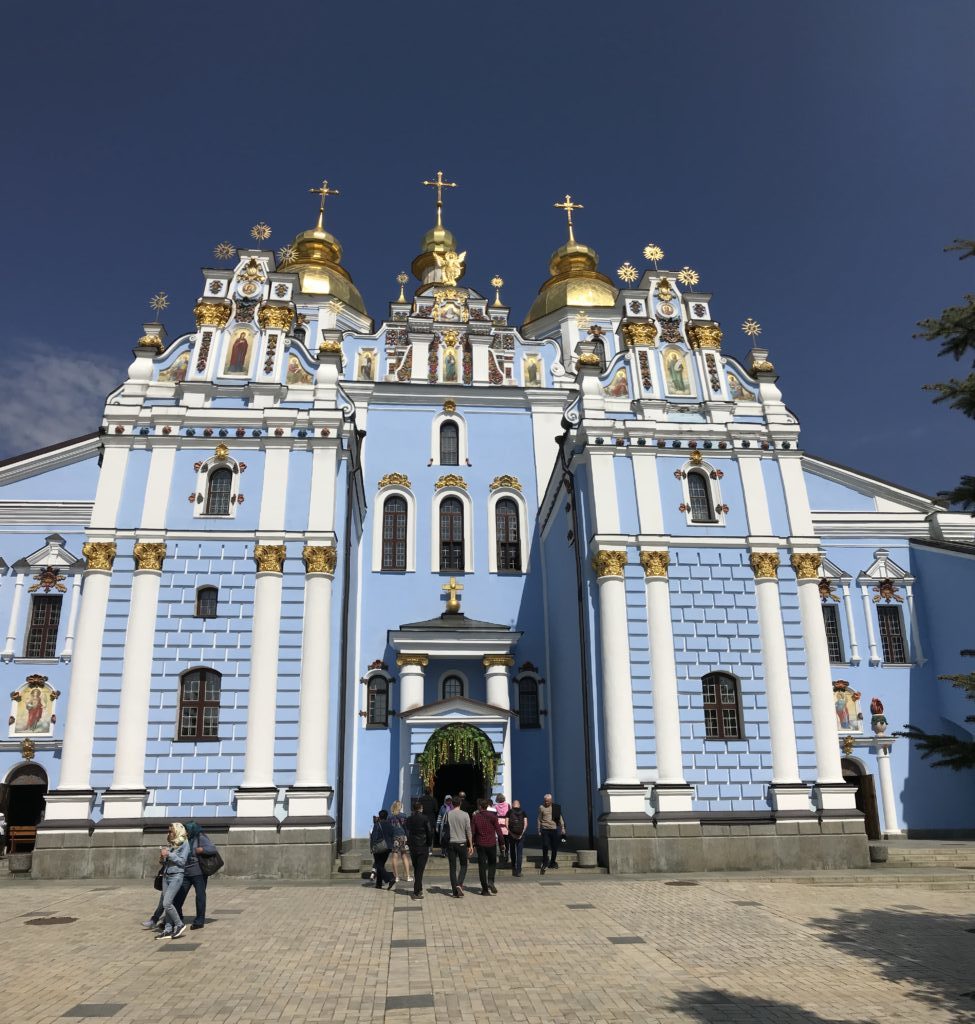
Here’s some truth. If you’re well-traveled in Europe and seeking a deeper experience, put Lviv on your list. Lviv’s UNESCO World Heritage city center is a neat, easy grid of pedestrian-friendly cobblestone streets with cafes and coffee and beer and meat and potatoes and festivals and markets and wonderfully preserved 18th century architecture. And if your curiosity for Ukraine is greater than that, Kyiv beckons with a compact, hilly historic center surrounded by parks filled with (blighted with, if you ask some Ukrainians) Soviet era relics to the politically archaic notion that productivity can be achieved solely by nationalistic peer pressure (Ukrainians know otherwise).
The truth is, there’s no need to fear visiting Ukraine. They have beer, street-side cafes, Nutella—basically, all the European necessities.
A final, departing, truth for you: “Pravda” is also the name of a pub in Lviv. It’s a “beer theatre” with live music and no shortage of young Ukrainians getting on with life under the disdainful gaze of the bear in the east. I venture to say there’s more truth in this pub than there ever was in the pages of an archaic Soviet state newspaper.
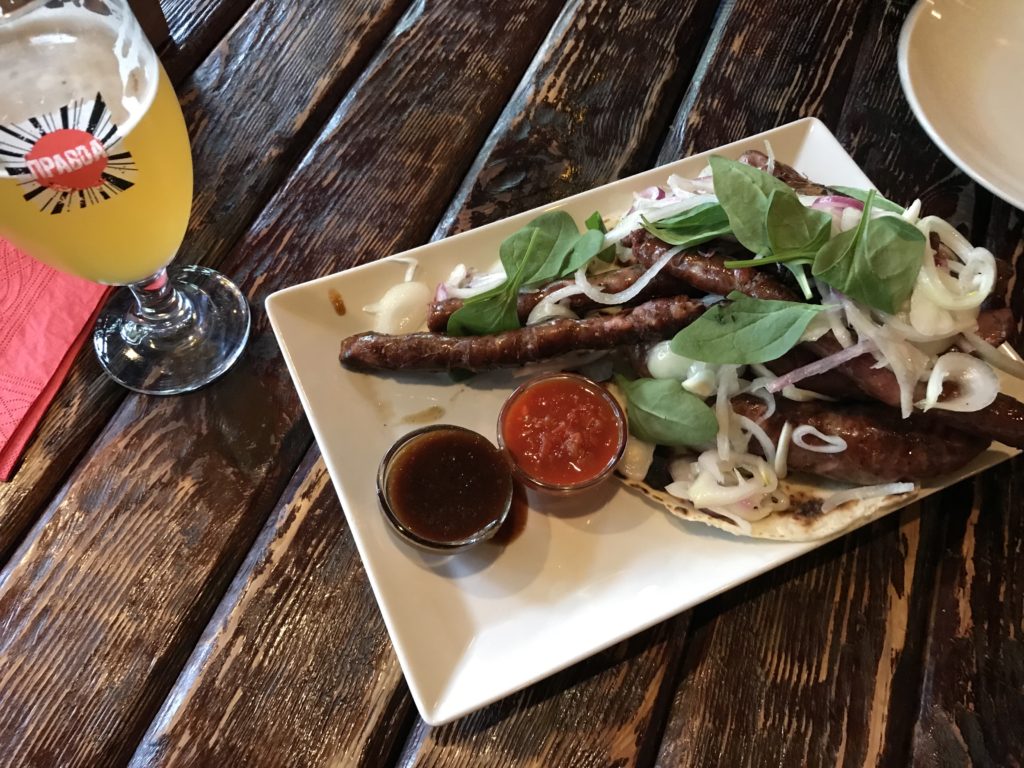
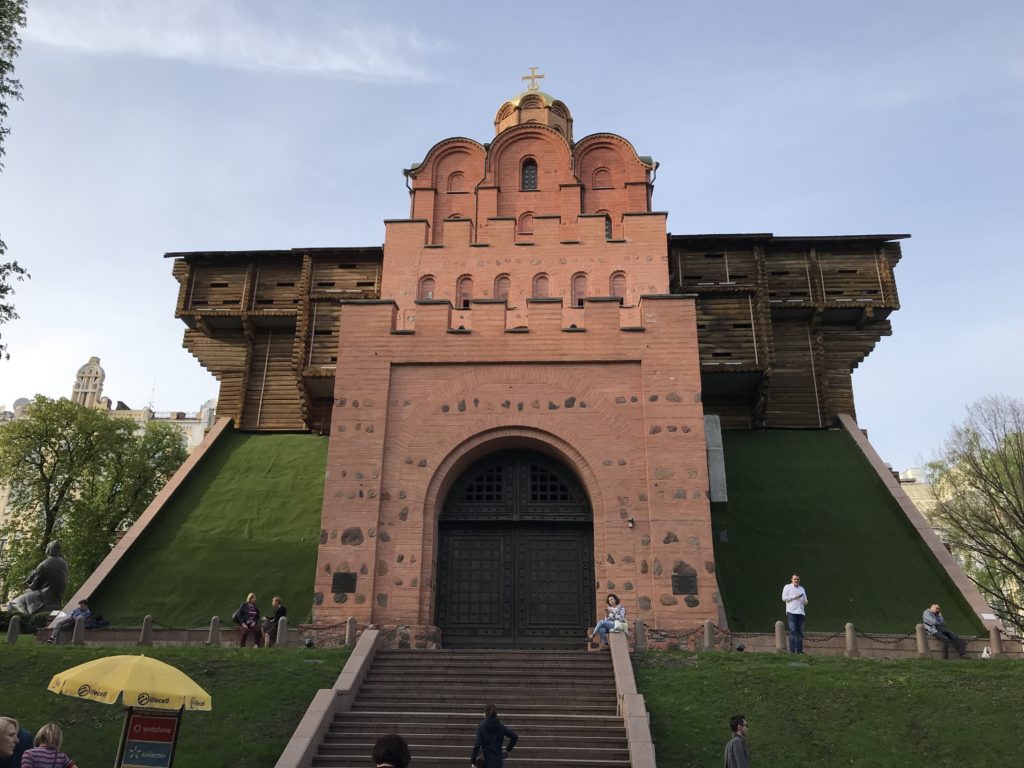
The Great Gate of Kyiv (cue Mussorgsky) 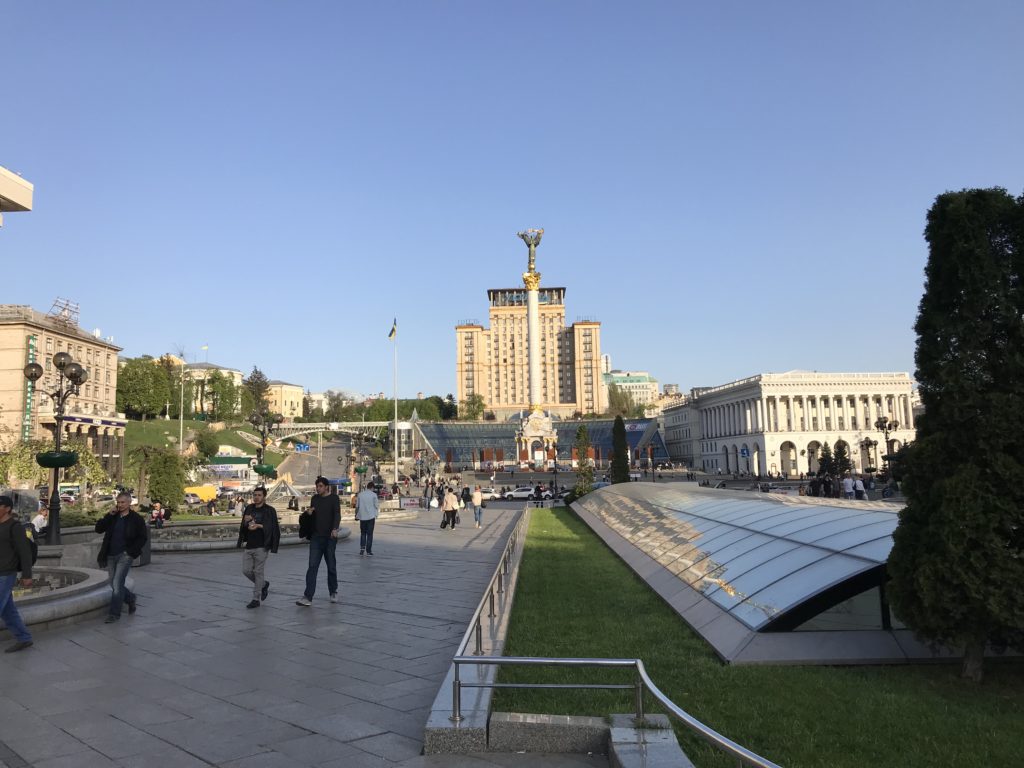
Independence Square, Kyiv 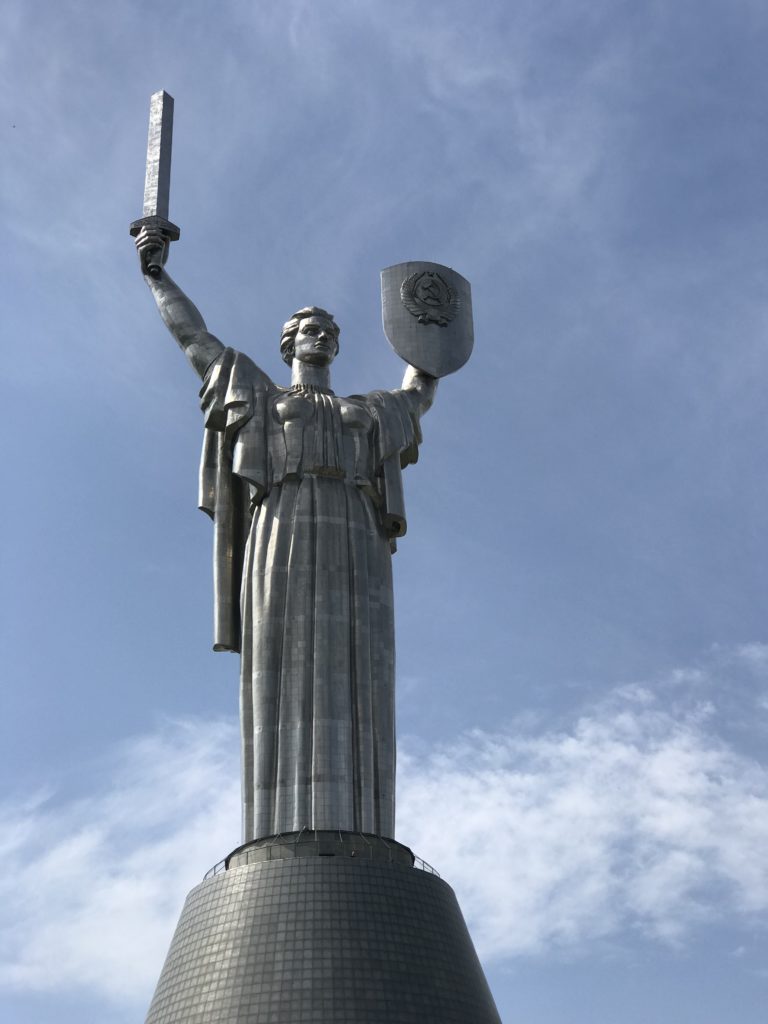
The Motherland Monument (a Soviet relic) 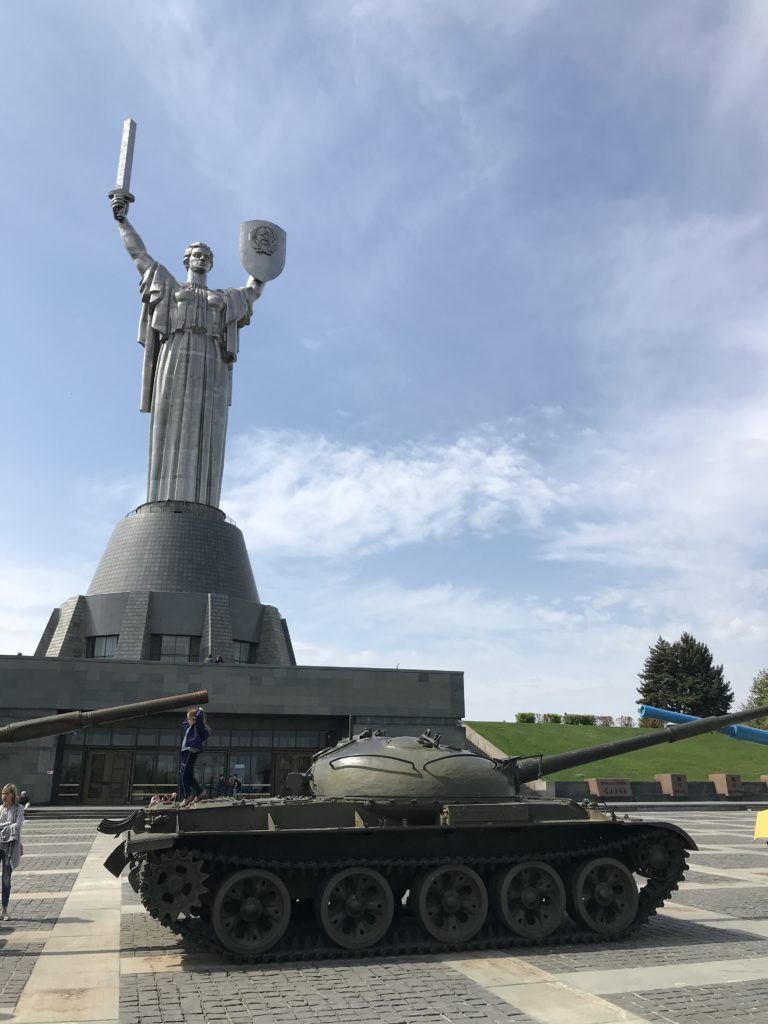
The Motherland Monument in a fuller context 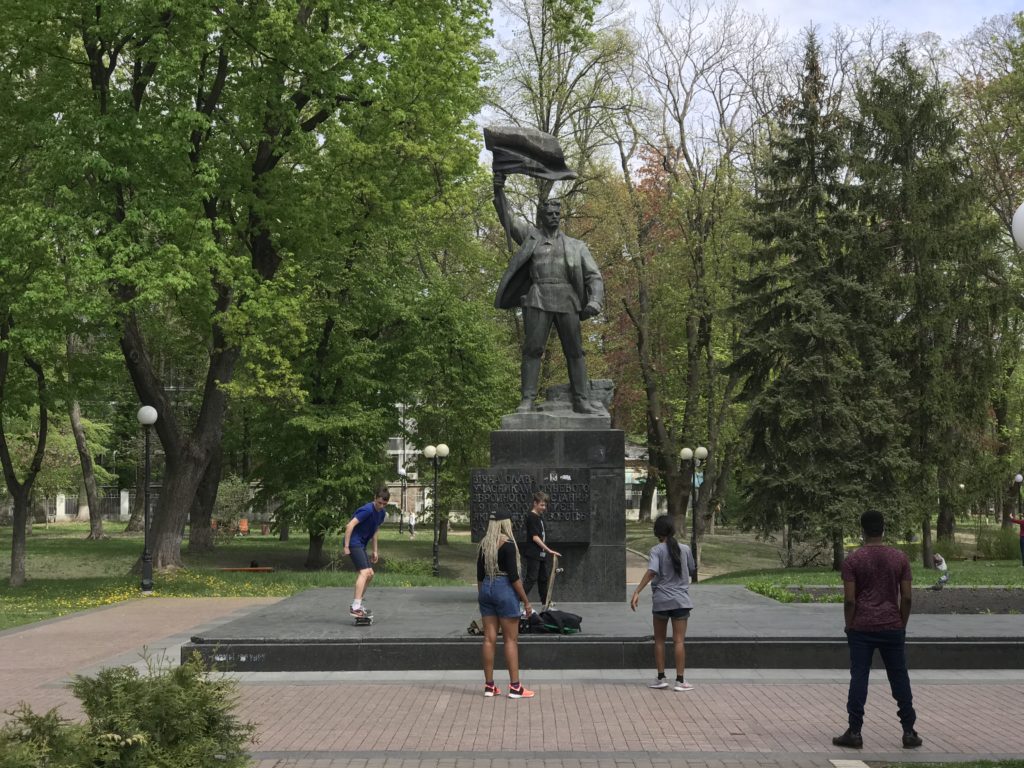
Skateboarders under watchful eyes 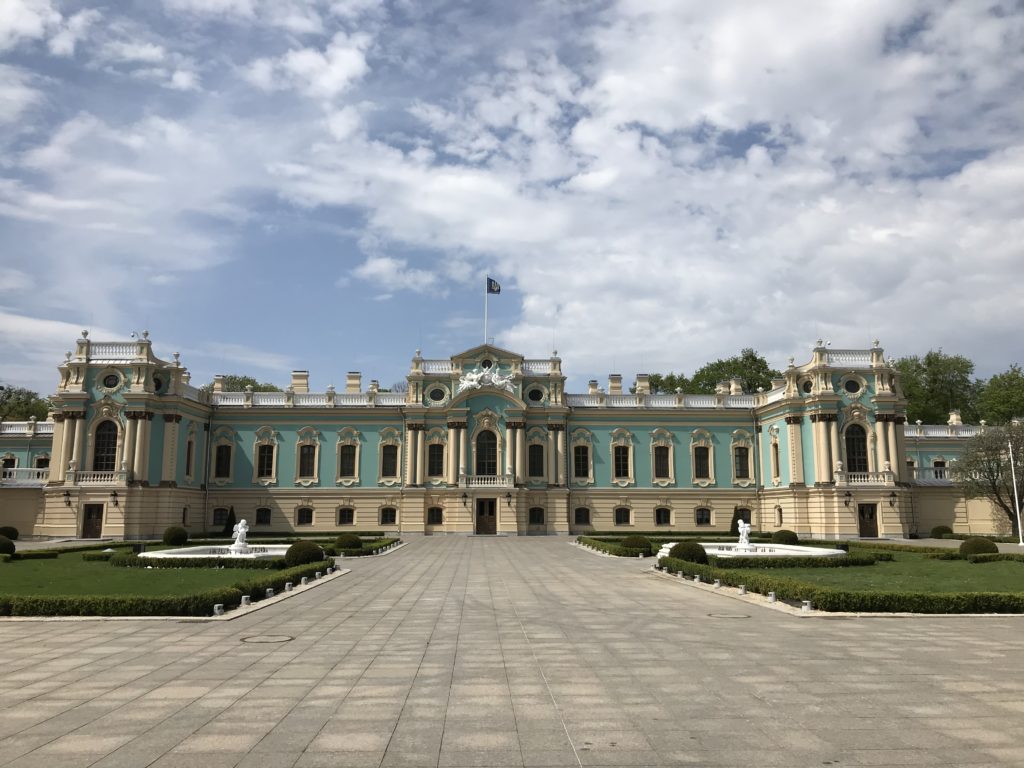
The Ukrainian Palace, Kyiv 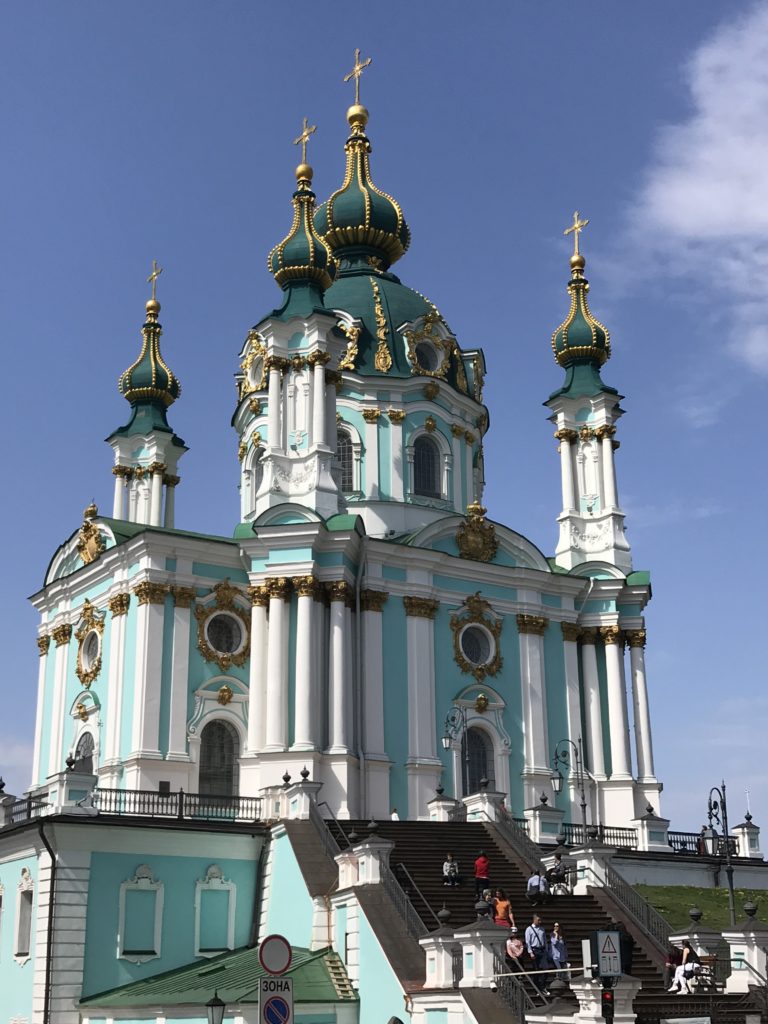
St Andrew’s Church (Андріївська церква) 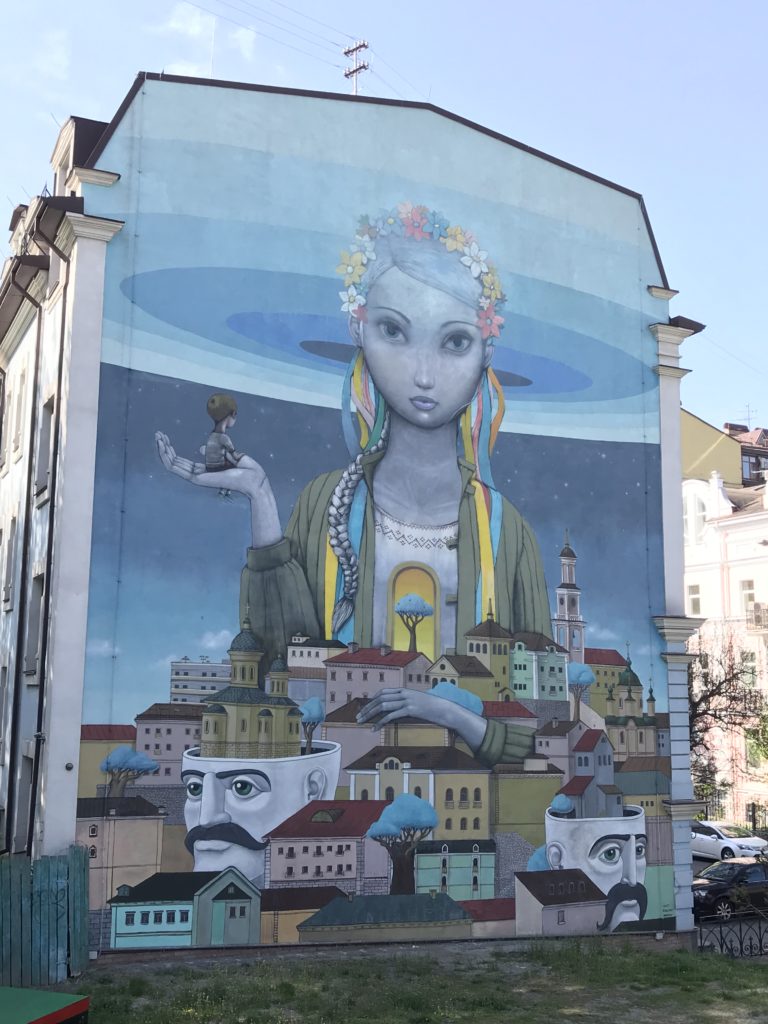
Street mural in Kyiv 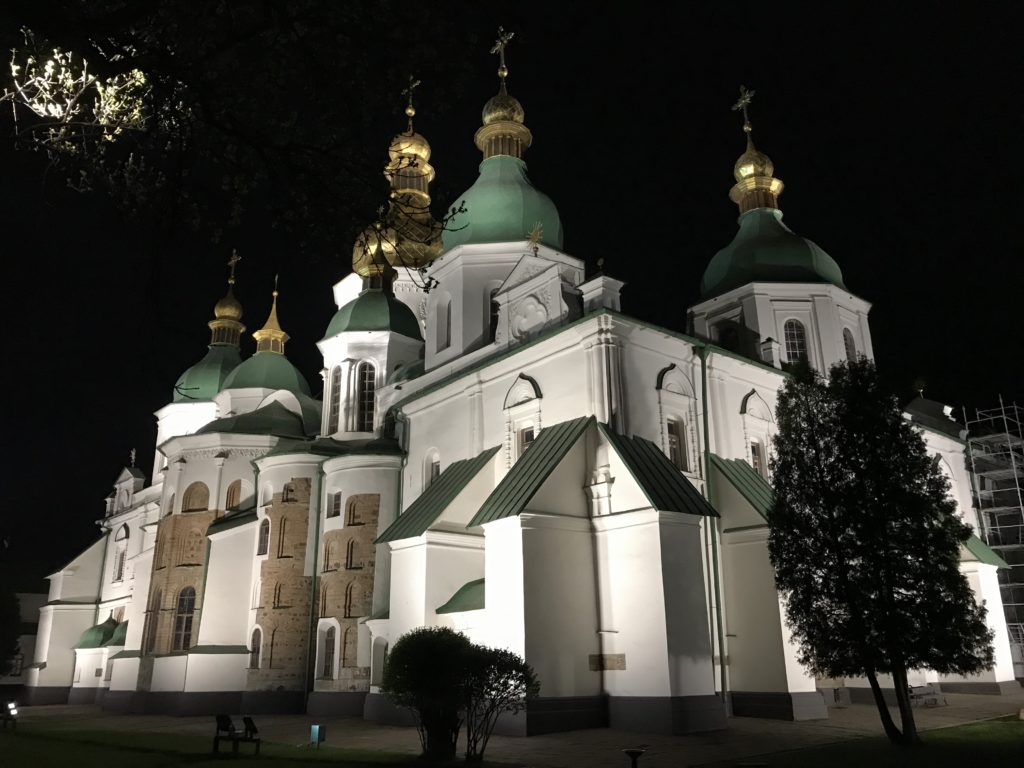
St Sophia’s Cathedral, Kyiv 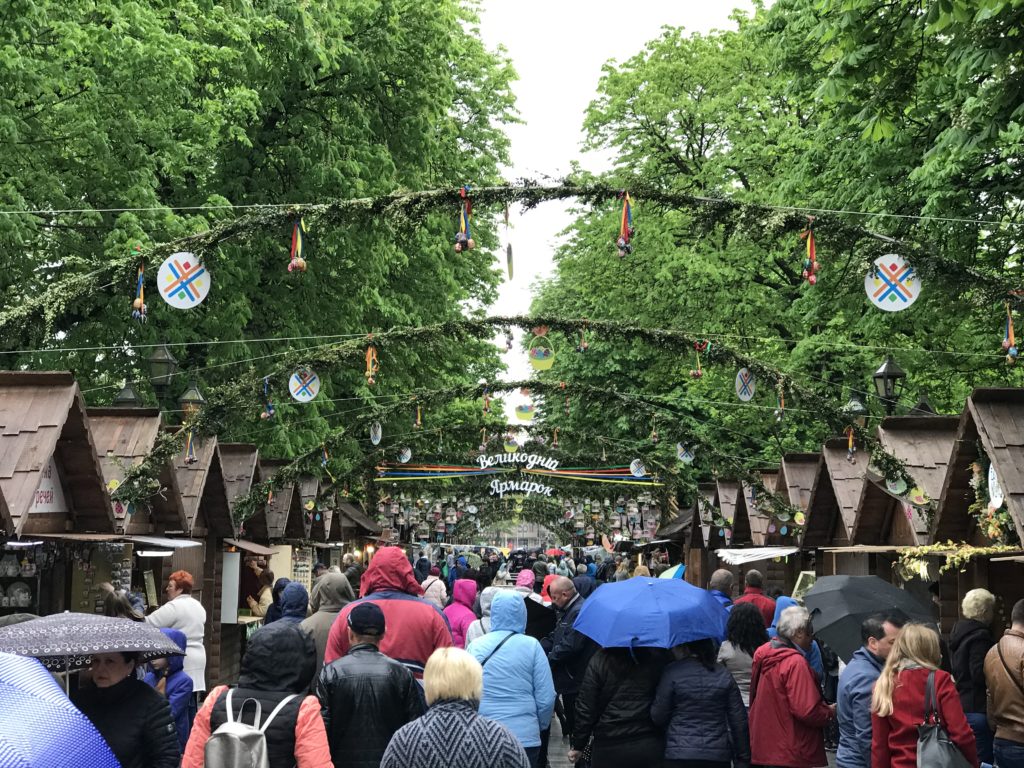
Market in the main square, Lviv 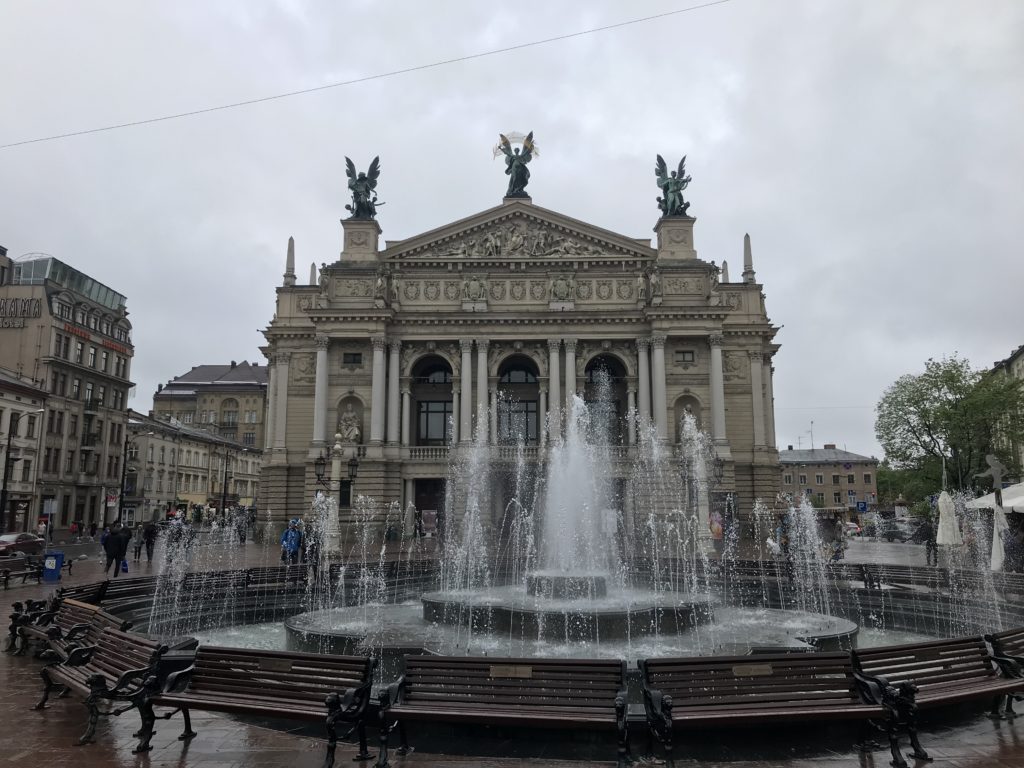
The Opera House, Lviv 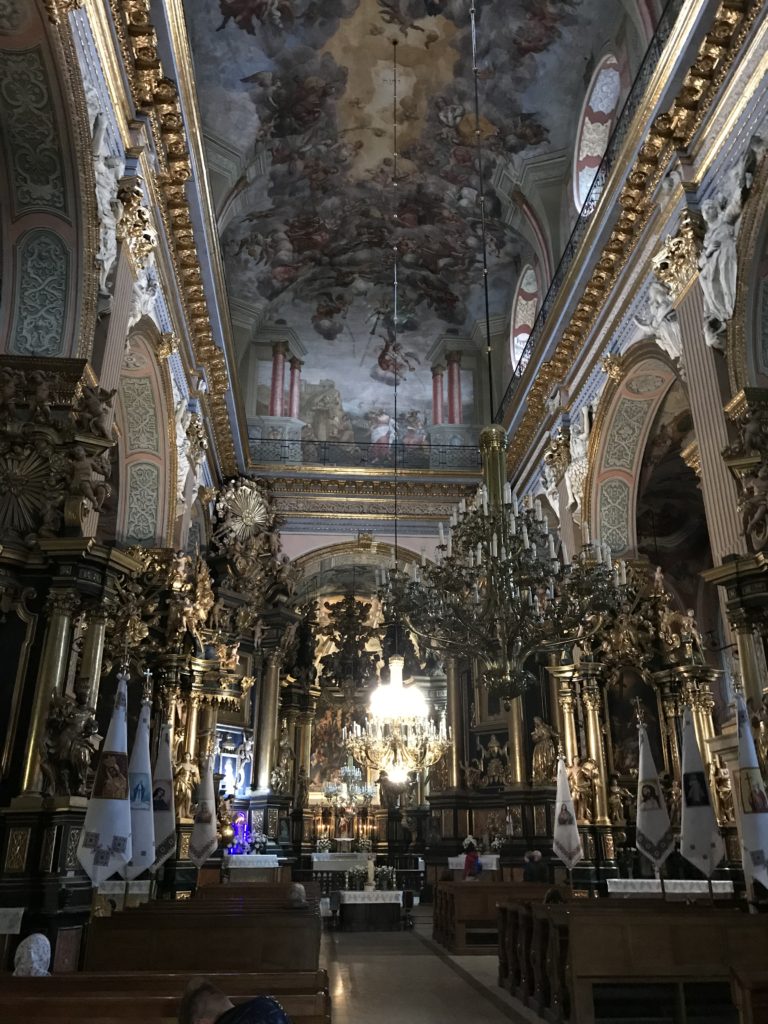
Church interior, Lviv 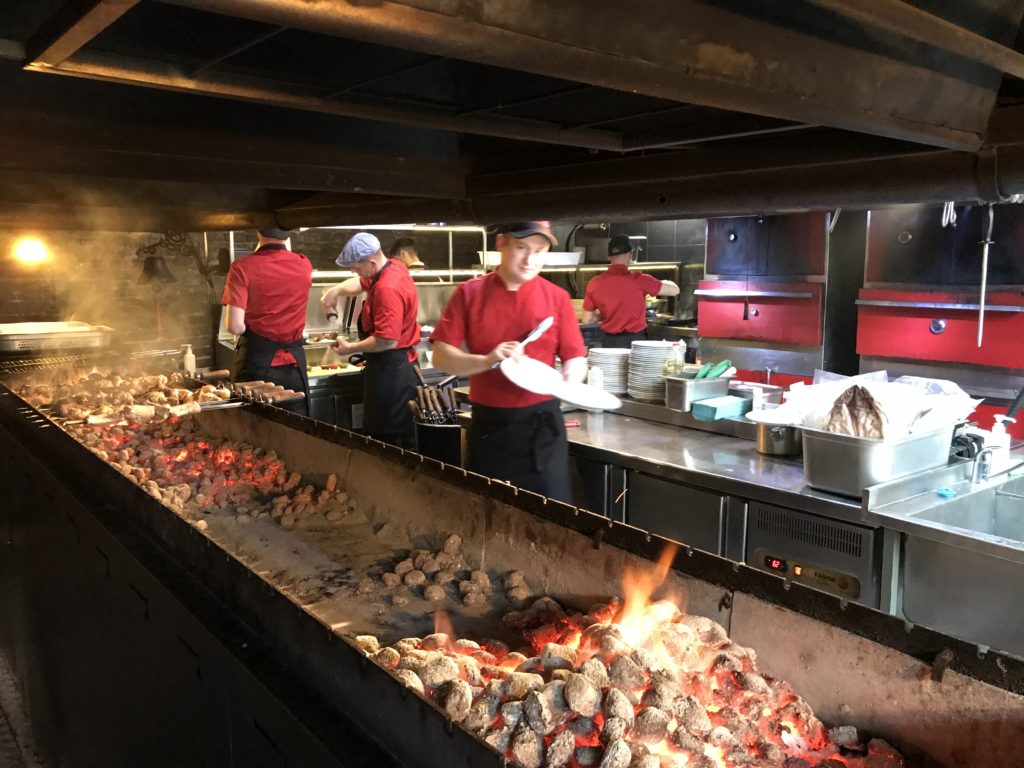
“Meat and Justice”, Lviv 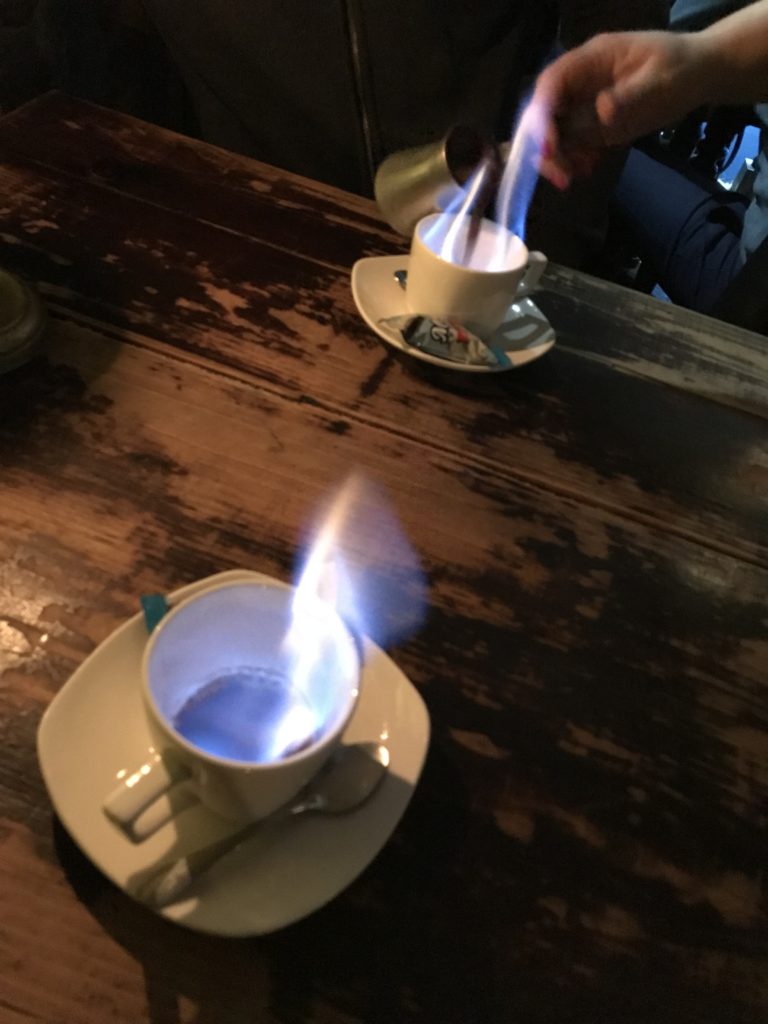
Coffee at the “Blue Bottle”, Lviv 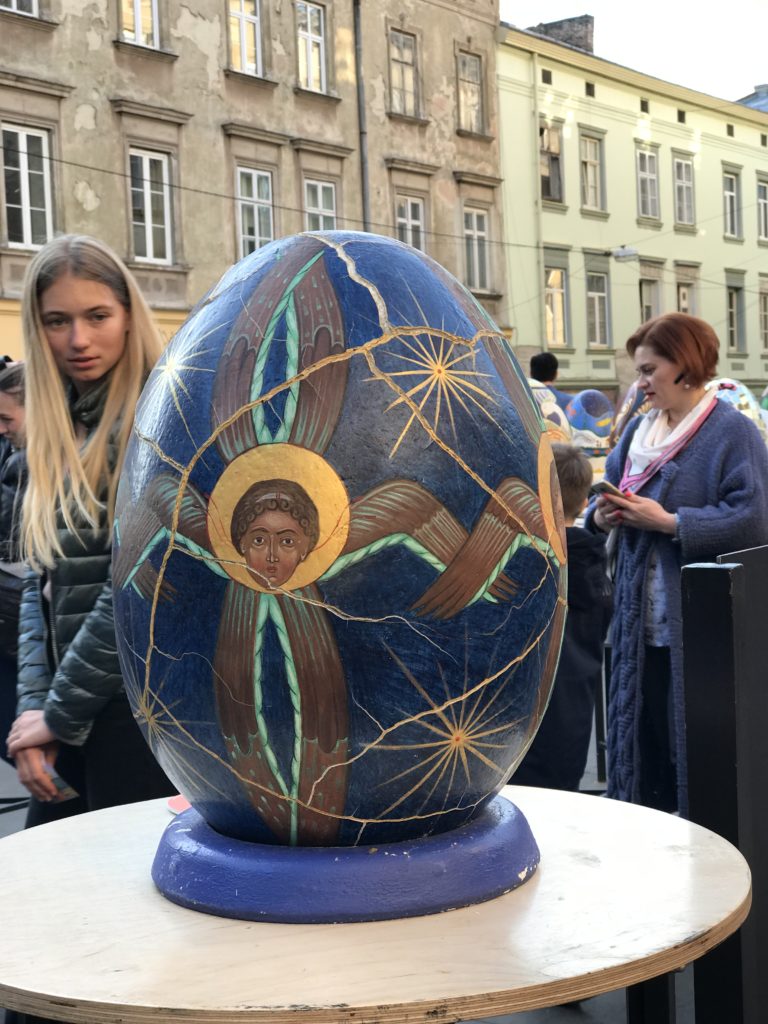
Easter egg, Lviv 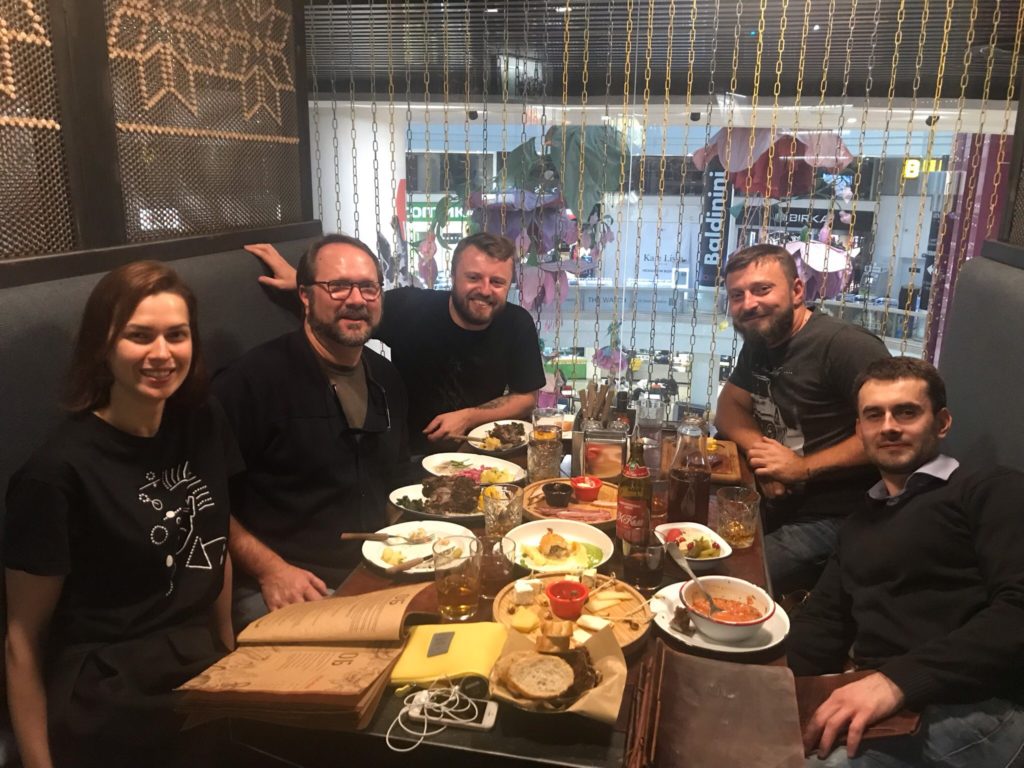
Some of my new team in Kyiv 